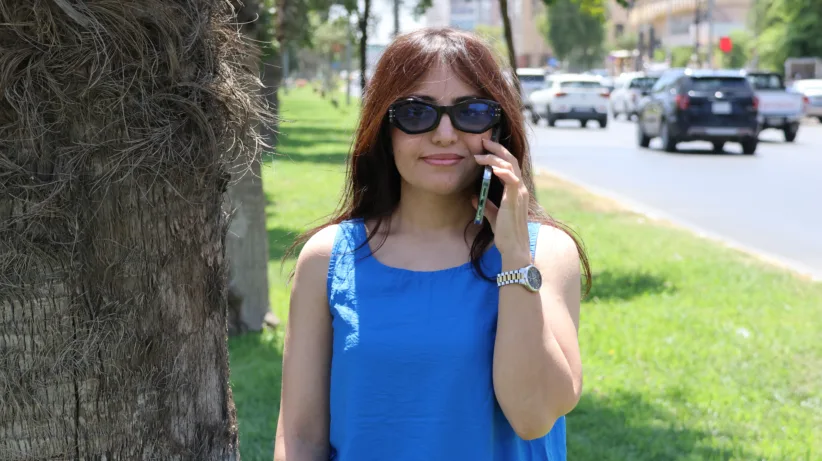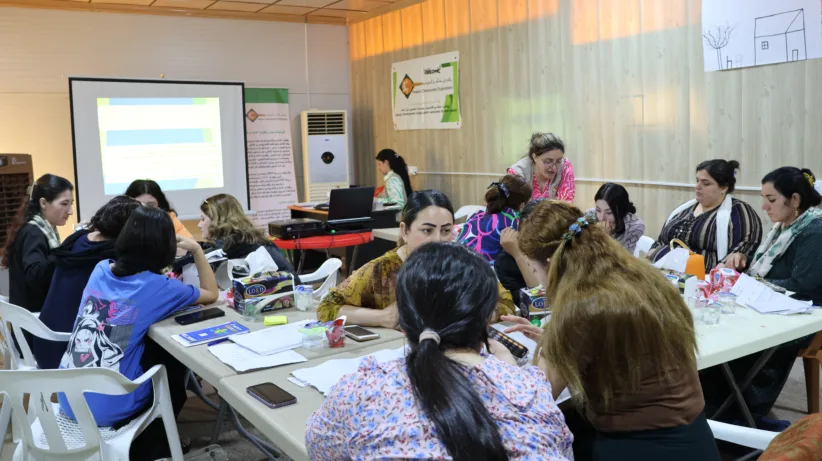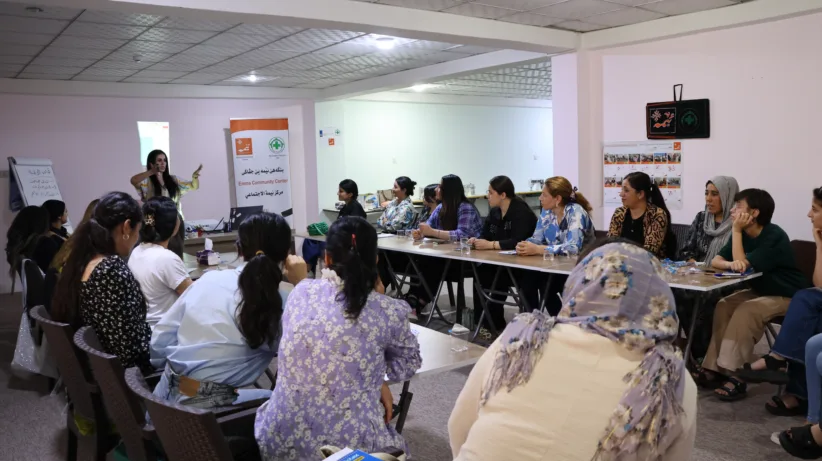A Decade After ISIS: Will My People Find Peace?
Many people have not come to terms with the trauma of war and the tough path that leads to inner peace and reconciliation to rebuild and live a normal life, says Kochar, a 33year-old Yazidi woman who holds a university degree in physics and is a professional Social Worker with NPAs local partner, People’s Development Organisation (PDO).

Kochar is among the Yazidis who will commemorate Yazidi Genocide Day on the 3rd of August, marking a decade since the Islamic State of Iraq and Syria (ISIS) horror invasion that forced Yazidis to flee their homes for safety. The horrific legacy of the genocide is not a secret to the world leading to a story of survival, reconciliation, peace, social cohesion, and forgiveness. Ten years later, when visiting existing camp settlements like the Sharya camp in the Kurdistan Region of Iraq (KRI), one still finds many Yazidis stranded in displacement camps.
Against this backdrop, the spotlight is on Kochar. She is a beacon of hope, a shining symbol of the victory of every Yazidi woman. At sunrise, she embarks on a mission to stop the cycle of violence and the inequalities that have long haunted the Yazidis. Given the sensitivity of her work, she fully respects the honored religious and cultural traditions of the community and is fully aware of the associated risks. Often, she faces the fear of being misunderstood by the community while promoting women’s and human rights.; On the other hand, she must manage the personal challenge of the secondary trauma associated with listening to stories of immeasurable pain.
“It breaks my heart every day when I meet young girls who have suffered as a result of conflict and have lost opportunities to live a normal life,” she says.
Kochar and her immediate family members were fortunate. They had migrated from Sinjar to Baadre, a Yazidi town, long before the invasion. However, the family contains the pain of their relatives who were kidnapped by ISIS and remain missing. This personal ordeal sparked a desire in Kochar to help families who had experienced similar fates. Armed with her notebook and phone, her routine involves attending capacity development workshops, training, and going to communities where she records testimonies and provides case management when needed.

Reconciliation and Peacebuilding
Kochar has been working as a Social Worker since 2016 in the People’s Development Organisation (PDO) Her tasks involve supervising Social Workers, assisting the Project Manager, and ensuring volunteers and Social Workers adhere to standards when dealing with the community. "I enjoy listening and creating a safe environment for those in need of support, making them feel confident and secure to talk about their problems," she says.
Every day, Kochar meets many displaced women and girls from the Yazidi communities facilitating the main component of the programme, Women Protection and Empowerment. She believes in the pursuit where women and girls protect and empower each other in a world where they can be respected, live free from violence, and are valued members of their community. The programme aims to improve stability, well-being, social and economic empowerment of conflict-affected populations, and the safety of women and girls, focusing on those at risk of or who have survivors of different forms of violence. It is also intended to enhance local organizations' effectiveness in improving service delivery in case management, referral pathways, Mental Health and Psychosocial Support (MHPSS), Psychosocial Support (PSS), trauma counseling, emotional assistance, social integration, confidence-building, and recreational activities.
NPA’s partners identify women, girls, men and boys that might benefit from the programme through outreach activities, with the support of community volunteers. Once the cases have been identified, she focuses on the identification provision of quality case management and MHPSS; as well as well-being and empowerment activities including, peer support sessions, grassroots advocacy programme, art therapy and relaxation sessions for women and girls 15+.
The programme also focuses in providing a voice and a platform for Yazidi survivors, so they can actively advocate for their rights with grass-root advocacy initiatives and increasing awareness for implementing Law No.8 of 2021 - Yazidi Female Survivors Law.
"In times of crisis, I want to be the person they can turn to (survivors), and this is the main motivation that keeps me going," says Kochar. The programme offers women service provision, resources, knowledge, and opportunities for skills development and economic empowerment, aiming for their active participation in decision-making processes.

Kochar's story is one of inspiration and the commitment that should drive us. Having lost relatives in the horrors of the Sinjar massacre, she chose to channel her pain into helping others heal. Her vision for a future where Yazidi women lead and participate actively in their communities is a powerful narrative of change and empowerment.
On this day, we in NPA stand in solidarity with the Yazidi community all over the world, as they remember their loved ones. Through our partners in Iraq, we are aware of the ongoing struggles faced by the Yazidi community. For example, the surging demand for basic daily needs like basic services like Mental Health and Psychosocial Support (MHPSS) are more and more difficult to find. While our partners have continued to work tirelessly to rebuild their lives and communities through offering such services, much more is needed to empower the Yazid women to gain control of their lives, access their human and women’s rights, and seek justice.
NPA Iraq thanks the Ministry of Foreign Affairs of the Netherlands for their continuous and generous support since 2016.
The Netherlands is a strong supporter of the Yazidi community and this remains a priority for us. We aim to do so by providing vulnerable minorities, including the Yazidi community, with mental and psychosocial support, aiding to enable return to areas such as Sinjar, and supporting them in rebuilding their lives by, for example, providing education, training and support in finding work or setting up a business, also specifically focusing on women. We do this by working closely with civil society, NGOs, interest groups, community and religious leaders, the UN and the government of Iraq. And in this regard NPA has been a longstanding and important partner for the Netherlands. This is illustrated by the work of Kochar, which highlights the importance and impact of this work and we will continue to support this work in future years as well. In addition, we remain committed to justice and accountability for the terrible crimes committed by ISIS.
